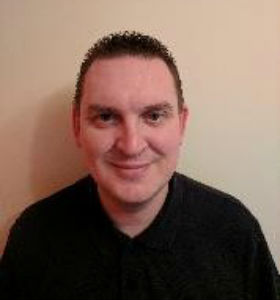 What is your current role?
What is your current role?
As Mechanical Engineer I work in a team of six which provides operations maintenance support to the Piper Bravo platform and Flotta Oil terminal.
I am responsible for providing day to day support for all rotating equipment maintenance activities as well as identifying and implementing equipment reliability improvements.
Outline your career so far. Have you worked on any unusual or high profile projects?
I started my engineering career in 1990, as an apprentice with Pumpcare Ltd (now Sulzer Wood Ltd) who provide rotating equipment support and engineering services to the North Sea oil and gas market.
Early career highlights at Sulzer Wood Ltd have included promotion to a supervisory role where I was responsible for a team of 24.
In 2008 in a Technical Focal Point role I was responsible for the day to day management and development of the Quality Control Inspection department, drawing office and quality support functions.
During this period I also managed the development of re-engineering capabilities within Sulzer Wood.
In 2012 I was promoted to Technical Quality Manager with responsibility for a team of 18. As part of the senior management team I helped develop business strategy, set local business objectives and support contract tender activity.
You were registered as an EngTech (Engineering Technician) before becoming an IEng (Incorporated Engineer)? Describe your experience of becoming an EngTech
I applied for EngTech registration during the third year of my BEng degree, when I was made aware of the benefits of becoming registered with a recognised institution.
What encouraged your registration as an IEng?
After I had completed my degree I wanted to progress further to IEng registration.
Describe how you became an IEng
Before submitting my application my sponsor reviewed my application for me. I then made my application for IEng registration online. I found the process fairly straight forward.
The interview was about an hour long. I was encouraged to talk about my career to date and professional achievements. I provided verbal examples of work I had undertaken and described some particular challenging situations. The panel also asked me questions about my application and experience.
Did anything surprise you about the experience?
I didn’t find the Professional Review Interview particularly difficult. The discussion and questioning was thorough and I was given sufficient time to answer the questions fully. As I had reviewed my application form before the interview I felt I was prepared. As with any interview process I was a little anxious about the result and was relieved to hear that my application was successful.
What advice would you give someone considering professional registration as an IEng?
I would advise anyone considering professional registration as an IEng to make the most of the opportunity. Do ensure that the evidence you provide fully demonstrates the breadth and depth of your professional development. I would suggest you use or explain your examples and terminology in a fashion which can be easily understood as the peer review and interview process will be conducted by engineers from different fields of expertise.
How has becoming an IEng benefited your career?
I believe being registered as an IEng and a member of the IMechE has contributed to successfully obtaining the role of Mechanical Engineer.
How does your employer benefit from you being an IEng?
Being an IEng gives my employer the reassurance that my professional competence has been assessed and acknowledged by my peers and that I have successfully demonstrated my commitment to professional development and the field of engineering.
What are your future career goals?
My current career goals are to work towards a rotating equipment Technical Authority or Maintenance Superintendent’s role.
Find out more about becoming an Incorporated Engineer (IEng).